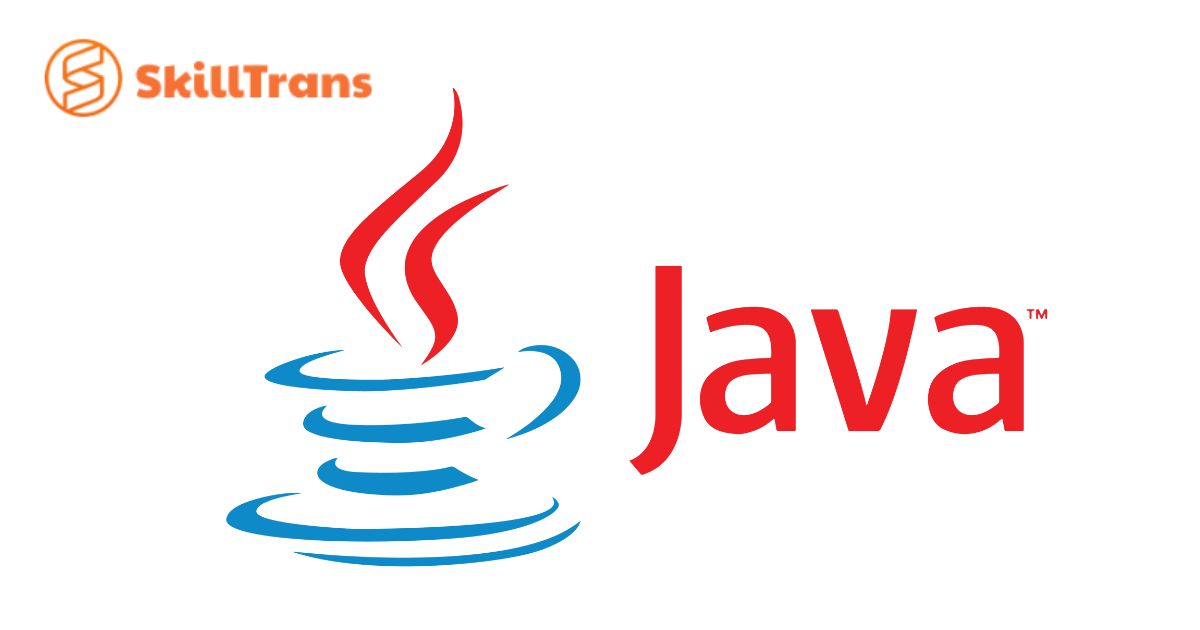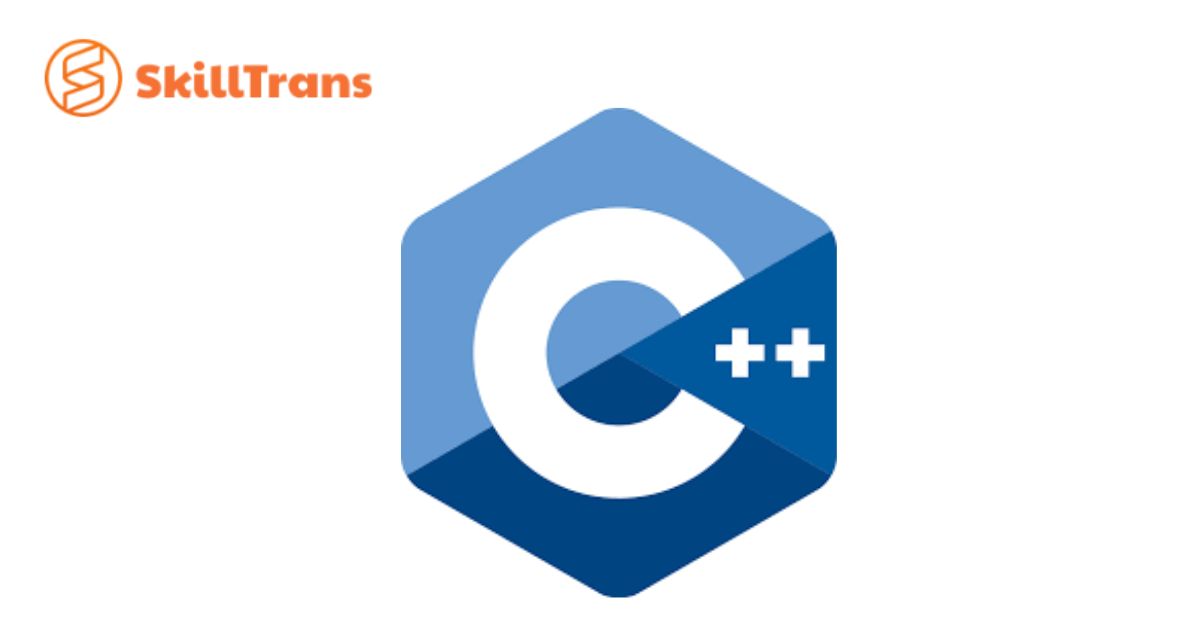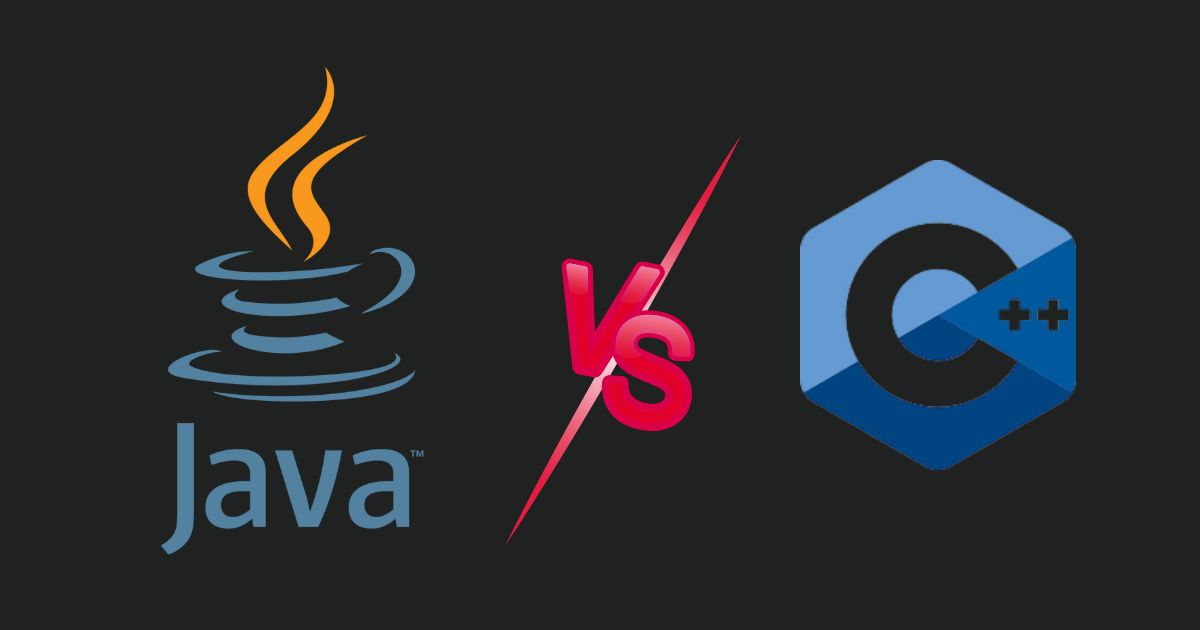Java vs C++: Differences And Which Should You Learn?
According to the Tiobe index, both Java and C++ are among the top five most popular programming languages in the world. Of course, either language is a great choice for beginners to learn coding. The question is, should you learn Java or C++? In this comprehensive comparison of Java and C++, we will discuss the differences and similarities between the two languages.
What is Java?

Java is a high-level, object-oriented programming language that was first released in 1995.
Java is used to build applications and websites because it is fast, secure, and reliable. Java is platform-independent and uses a compiler to run on any machine. Laptops, data centers, game consoles, scientific supercomputers, mobile phones, web browsers, and websites all run on Java. Wikipedia, Minecraft, Android OS, LinkedIn, Uber, and Mars Rover Controller are all built using Java.
Some Features of Java
Here are some of the advanced features of Java:
Simple and Friendly
Java is designed to be easy to understand and learn. If you understand the basic concepts of Java OOP, you will easily master Java.
Independent
For a computer to understand and execute instructions, a compiler or machine language interpreter is required. Java combines the power of a compiled language with the flexibility of an interpreted language. Unlike many other programming languages, such as C/ C++, Java is compiled into platform-independent bytecode. This bytecode is distributed over the web and interpreted by the Java Virtual Machine (JVM) on whatever platform it is running on.
Flexible
Java is considered more flexible than C/ C++ because it adapts to the evolving environment. Java programs can carry a large amount of runtime information that can be used to verify and resolve access rights to objects at runtime.
Secure
Security is an important issue for any programming language because of the threat of malicious activities and viruses. Java has a bytecode verifier that checks code snippets for any illegal code that violates access rights.
Object Oriented
In Java, everything is an “object”. Java is easily extensible because it is based on the Object model.
Applications of Java
With Java, you can create:
Mobile applications, both on Android and Google OS
Internet of Things (IoT) devices – Java connects devices such as mobile phones, TVs, computers, and tablets to appliances or machines in the home or industries like healthcare, security, utilities, supply chain management, etc.
Cloud applications, for example, storage, file sharing, virtual machines, point of sale software, email, etc.
Extensible secure web applications
Internet and Android games, for instance, Minecraft
Enterprise applications, like employee management, reservations, data storage, file sharing, and more
Scientific applications, such as healthcare and research computing, automation, and data storage.
What is C++?

C++ is a low-level object-oriented programming language used for game programming, application design, low-level websites, transactions, etc. Software, systems that manage large data, such as electronic libraries, reservations, employee information management, etc. will use C++. Apple OS, Mozilla Firefox, Adobe Photoshop, Spotify, Amazon, and YouTube have all been partly created using C++.
Some features of C++
Here are some advanced features of C++:
Object Oriented
C++ is an object-oriented programming language. It means that the focus is on “objects” and the operations around these objects.
Rich library support
Through the C++ Standard Template Library (STL), many functions are available to help write code quickly. For example, there are standard libraries for different containers.
Simple
C++ is a structured programming language that allows us to divide code into different parts. It supports us in keeping the code simple and portable.
Fast
The compilation and execution time of a C++ program is much faster than most other general-purpose programming languages.
Pointer Support
C++ also supports pointers, which are widely used in programming and are often not available in some programming languages.
Applications of C++
With C++, you can create:
Operating systems such as MacOS, Windows, iOS
Game development, like World of Warcraft, Counter-Strike, and StarCraft, etc.
Game engines, for example Unreal Engine, Xbox, Playstation, Nintendo Switch
Internet of Things (IoT) devices, such as TVs, cars, smartwatches, medical devices, home appliances, etc.
Web browsers, such as Google Chrome, Mozilla Firefox, Safari, and Opera
Machine learning, one example is TensorFlow
Virtual reality (VR), such as Unreal Engine
Financial technology, for instance, trading, banking, financial modeling, etc.
Flight software, for example, military aircraft and commercial jets
Google search engine
Medical technology, such as MRI machines and data modeling
Telecom communications, like telephones, the Internet, and telecommunications infrastructure
Film production, such as special effects
Similarities between Java and C++
Java and C++ are similar in terms of programming language style, usage, and complexity. Both are object-oriented programming languages and can be used to create applications, operating systems, web browsers, and parts of websites.
They also have a similar syntax. In a nutshell, Java and C++ are like Portuguese and Spanish – different languages but still have some similarities.
These two programming languages have the same primitive data types: They include data types like int, float, char, double, etc, with some differences like Boolean data in Java (but it is called Bool in C++).
Differences between Java and C++

There are many differences between Java and C++ depending on the platform, memory management, and use of classes in each language. The comparison table below summarizes the differences between Java and C++:
| JAVA | C++ | |
| Type | Java is just an object-oriented programming language | C++ is both an object-oriented programming language and a procedural programming language |
| Objective | Java was designed and created as an interpreter for printing systems but was later extended as a network computer supporting | C++ is designed for system and application programming. It is an extension of the C programming language |
| Platform independent | Java is platform independent, based on the concept of “Write Once Run Anywhere” (WORA) | C++ is platform-dependent, based on the concept of “Write Once, Compile Anywhere” (WOCA) |
| Compilers and interpreters | Java supports both compilers and interpreters | C++ only supports compilers |
| Programming model | Java only supports object-oriented programming models | C++ supports both procedural programming and object-oriented programming |
| Portability | Java can run on any operating system | C++ is platform-dependent |
| Input-Output mechanism | Java uses (System class): System.in for input and System.out for output | C++ uses cin for input and cout for an output operation |
| Compatibility with other languages | Compatible with C source code, with some exceptions | No backward compatibility with any previous language |
| Hardware interaction | Java does not interact with hardware | C++ interacts with hardware |
| System management | Java is controlled by the system | C++ is controlled by the programmer |
| Error detection | The system checks for errors. | The Programmer is responsible for checking for errors |
| Virtual keywords | Java does not have virtual keywords | C++ supports virtual keywords so we can decide whether to override a function or not |
| Supported features | Java does not support features like operator overloading, Goto statements, structures, pointers, unions, etc. | C++ supports features like operator overloading, Goto statements, structures, pointers, unions, etc. |
Should You Learn Java or C++?
After comparing the differences between Java and C++, which language is best for beginners? For those who are looking to get a job in Software Development or study Software Engineering, it is better to learn more about Java because of the variety and flexibility it offers. However, for those who are looking to build operating systems, develop games, etc. that require high performance, C++ can be a better programming language than Java because it is faster than Java.
For beginners, it is better to learn C++ because the syntax of C++ is easier than Java and has extensive support for standard data structures such as stacks, queues, etc. However, for more experienced programmers, Java is a programming language used for Android and iOS programming in many big companies such as Amazon, Google, etc., and thus, will be of great help to Software Engineers.
Conclusion
After learning and comparing the differences between Java and C++, as well as the applications of these two languages, the next thing you need to do is find out which language best suits your interests and goals! If you aspire to pursue a career as a Software Developer, Programmer, or Professional Software Engineer with wide-open job opportunities at foreign companies, you can join Skilltrans courses today. We have many diverse courses with the most preferential prices waiting for you to explore.

Meet Hoang Duyen, an experienced SEO Specialist with a proven track record in driving organic growth and boosting online visibility. She has honed her skills in keyword research, on-page optimization, and technical SEO. Her expertise lies in crafting data-driven strategies that not only improve search engine rankings but also deliver tangible results for businesses.



